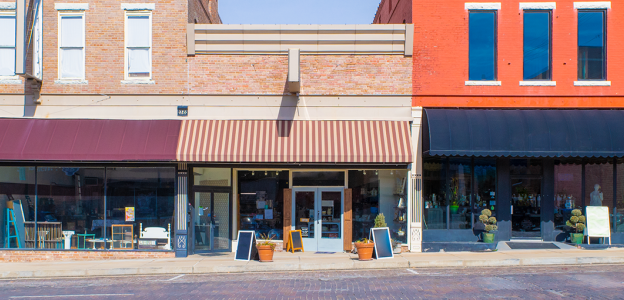22 April 2020
Are You Eligible For Commercial Lease Rent Relief?
Authors

COVID-19 ALERT LEVEL 4 – COMMERCIAL LEASE RENT ABATEMENTS - ADLS LEASE, SIXTH EDITION
This article (updated August 2021) is one of a series of articles which we have published in relation to COVID-19 and the consequences of the Government intervention which we have seen to date.
In this article, we discuss clause 27.5 (No Access in Emergency) of the Sixth Edition of the Auckland District Law Society’s Deed of Lease form (“ADLS Lease”). Broadly speaking, this clause entitles a tenant to rent and outgoings relief (of a “fair proportion”), where a tenant’s premises are inaccessible. It is therefore important to carefully examine clause 27.5 to see whether it has been engaged (as if the requirements of the clause have not been met, then a tenant will not be entitled to relief).
When will clause 27.5 be engaged?
The opening words of clause 27.5 say [emphasis added] “If there is an emergency and the Tenant is unable to gain access to the premises to fully conduct the Tenant’s business from the premises…”. Those words set the framework for determining whether the clause is engaged.
The clause also goes on to list example situations showing when the clause will be engaged. Those examples include situations where access is completely prohibited and other situations where access is only restricted.
It has already been widely accepted that the COVID-19 pandemic qualifies as an “emergency” for the purpose of clause 27.5. We therefore do not discuss this point further and focus solely on the latter two parts: (a) is the Tenant unable to gain access (b) to fully conduct its business.
Is the Tenant unable to gain access?
A tenant’s inability to access its premises must be due to a legal requirement imposed by a competent authority. Therefore it is important to actively monitor the legal restrictions which are in place to determine whether access to a particular premises is legally prohibited. More information regarding this is in our article titled “Covid-19 – Why does my Business have to Close and will my Rent be Reduced?”, this can be accessed here.
This means that you need to identify situations where:
A tenant’s access to premises is legally prohibited or restricted (in which case clause 27.5 will be engaged and it becomes a question of assessing the extent to which a tenant can continue to conduct its business); and
A tenant’s access to the premises is not legally prohibited or restricted and the tenant is choosing to close the premises for economic or other reasons (in this situation clause 27.5 will not be engaged and the tenant will not be entitled to abatement).
Under the Alert Level 4 lockdown, access to premises which are not “essential businesses” has generally been prohibited.[1] Therefore to determine whether access to premises is prohibited and clause 27.5 is engaged it is necessary to:
Identify the business activities which are conducted from the premises by a tenant. Those activities must be within the scope of the particular tenant’s permitted “Business Use” under the lease (for the purpose of this article, we call this a tenant’s “Permitted Business Activities”).[2] If there are any activities carried out by the tenant which are outside of the Permitted Business Activities then the tenant is not allowed to do them at all regardless of COVID-19 measures. Therefore they do not count under clause 27.5.
Check whether all or part of a Tenant’s business activities conducted from the premises (which are Permitted Business Activities) are an essential business.[3]
If all of a tenant’s business activities conducted from the premises (which are Permitted Business Activities) under the lease are an essential business then the tenant’s access to the premises will not be prohibited or restricted and clause 27.5 will not be engaged (unless the tenant can show that despite such access, it is not able to "fully conduct its business. This might be the case, for example, where an essential business operator is unable to operate at full capacity due to social distancing requirements).
Is the Tenant able to fully conduct its business?
If none of a tenant’s business activities conducted from the premises (which are Permitted Business Activities) are an essential business, then clause 27.5 will be engaged.
Similarly, if only some of a tenant’s business activities conducted from the premises (which are Permitted Business Activities) are an essential business, then clause 27.5 will be engaged.
It will then be necessary to see how clause 27.5 applies to the particular circumstances. Part of this assessment will involve attaching weight (and value) to any parts of a tenant’s business activities which qualify as an essential business (and are therefore allowed to continue under the COVID-19 restrictions). This means that it remains important to monitor the legal restrictions which are in place. Those restrictions have been and continue to be revised, so the timing of those revisions will be relevant in determining the application of clause 27.5.
Next Steps
If it is determined that clause 27.5 is engaged, then “a fair proportion” of rent and outgoings ceases to be payable (in other words, there is a rental abatement).
This means that the next step is to determine the value of that abatement. We have published a separate article regarding this. It can be accessed here.
Disclaimer
The above information is of a general nature only; in no way does it constitute legal advice. All readers should contact a law firm for advice relating to their specific circumstances.
[1] For information regarding what is an “essential” business, please see the list at https://covid19.govt.nz/business-and-money/businesses/operating-safely/doing-business-at-alert-level-4/#who-can-work . Please note that this list has been under constant review, so it is possible that the status of a tenant’s business as “non-essential” or “essential” may have changed (or change) during COVID-19 Alert Level 4. This will directly impact upon the period of time and the extent to which a tenant is entitled to an abatement.
[2] The tenant’s permitted “Business Use” will be set out in Item 13 of the First Schedule of the lease.
[3] See the list at https://covid19.govt.nz/business-and-money/businesses/operating-safely/doing-business-at-alert-level-4/#who-can-work








